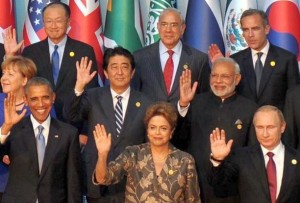 Antalya (Turkey), Nov 16: Making it clear that India has no tolerance towards black money, Prime Minister Narendra Modi on Monday called for an end to “excessive banking secrecy” in some countries so that ill-gotten money stashed away abroad can return to their country of origin.
Antalya (Turkey), Nov 16: Making it clear that India has no tolerance towards black money, Prime Minister Narendra Modi on Monday called for an end to “excessive banking secrecy” in some countries so that ill-gotten money stashed away abroad can return to their country of origin.
“We need greater international cooperation for return of illicit money to the country of origin. We must address the barriers of excessive banking secrecy and the complex legal and regulatory frameworks,” Modi said in his intervention on the second day of the G20 Summit here.
The prime minister said India had zero tolerance on black money and corruption, and that a number of steps have been initiated in this regard, such as a new law to deal with undisclosed assets and income kept abroad and signing of a number of bilateral taxation treaties with other countries.
Commending the G20 for its successful efforts to build a more resilient and open global financial system, he said: “We must also deepen cooperation against terrorism financing, including through targeted financial sanctions and more effective counter-terrorism financing tools.”
Modi particularly thanked the Turkish presidency for delivering on the base erosion and profit shifting package in an agreed timeframe, referring to a practice followed by some multinational companies to exploit legal loopholes and avoid paying the otherwise due taxes.
In this regard, he called for sharing of country-specific reports of the Financial Action Task Force (FATF) – an inter-governmental body established in 1989 to set the standards and promote effective implementation of legal, regulatory and operational measures.
This apart, he said, all countries must also follow Common Reporting Standard based on Automatic Exchange of Tax Information — as mandated by the OECD (Organisation for Economic Cooperation and Development) for better global understanding and standards to fight tax evasion.
The Indian prime minister also said higher capital requirements should not become a constraint in promoting financial inclusion or functioning of the banking sector in developing countries. He, accordingly, called for effective supervision and use of technology to cut the cost of capital.
He stressed on cyber security as an important tool for protecting the banking infrastructure. (IANS)
